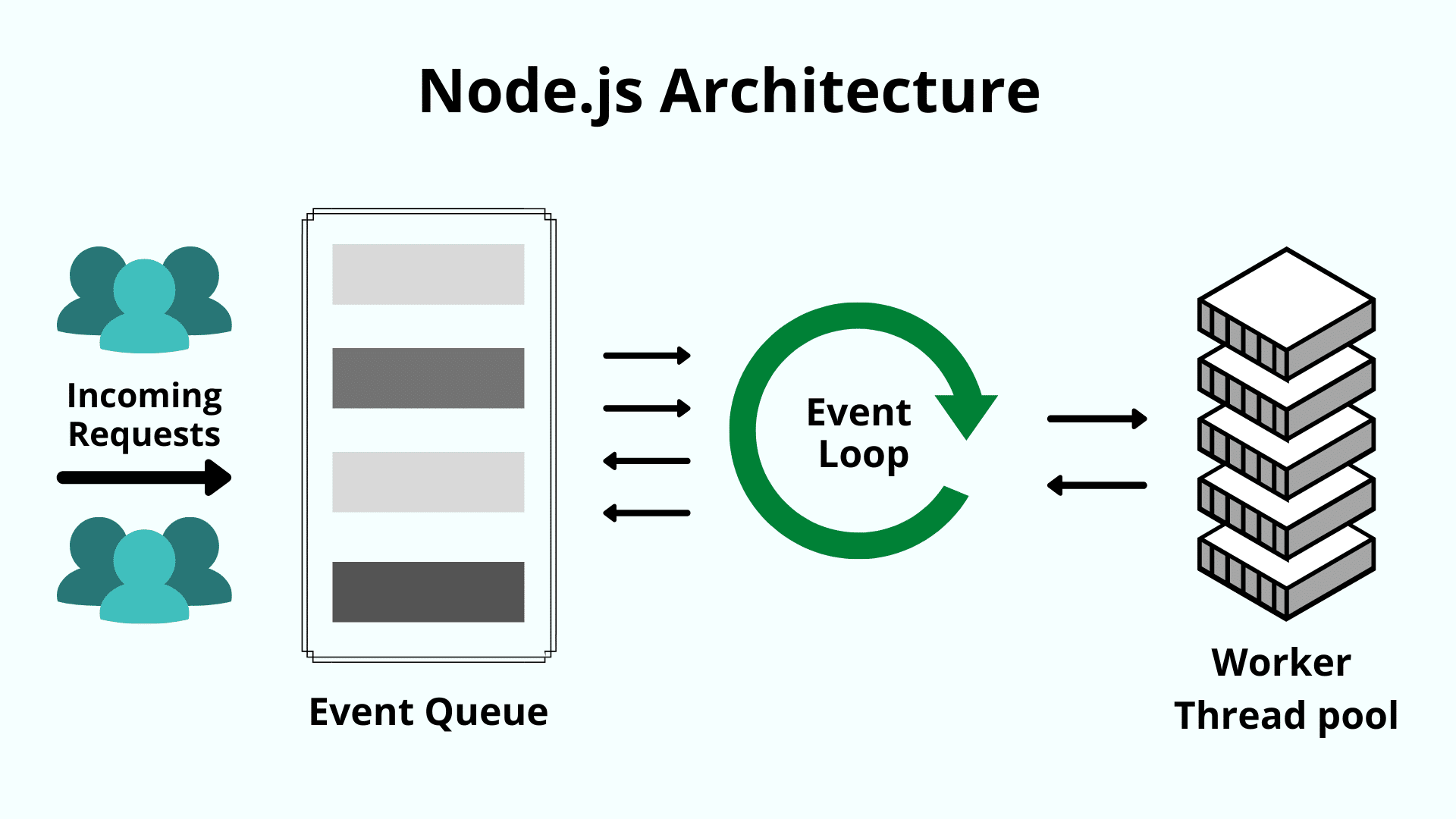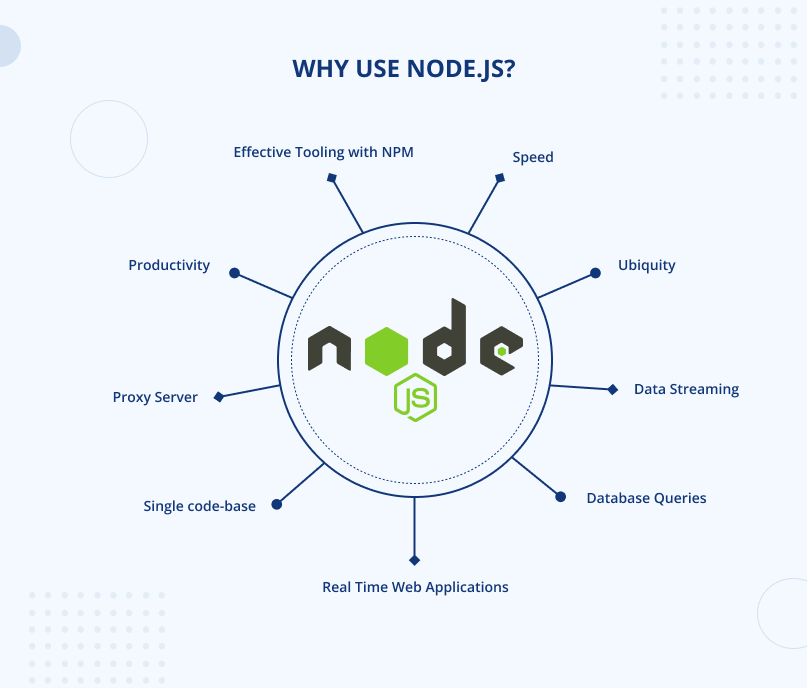What is Node.js?
Node.js is an open-source, cross-platform JavaScript runtime environment that allows developers to run JavaScript code outside of a web browser. It is built on Chrome’s V8 JavaScript engine and is commonly used for server-side programming.
Key Features of Node.js:
- Asynchronous I/O: Node.js is known for its non-blocking I/O operations, making it efficient and scalable for handling concurrent requests.
- Event-Driven Architecture: It uses event-driven programming to handle requests and respond to events efficiently.
- Package Ecosystem: Node.js has a vast ecosystem of open-source packages available through npm (Node Package Manager).
- JavaScript: Developers can use the same language (JavaScript) on both the client and server sides, promoting code reuse and reducing context switching.
- High Performance: Node.js applications can handle a large number of simultaneous connections with low latency.
- Scalability: Its event-driven architecture and asynchronous nature make it ideal for building scalable applications.
- Real-Time Applications: Node.js is well-suited for developing real-time applications like chat applications, online games, and collaboration tools.
- Community Support: Node.js has a large and active community that continually contributes new modules and tools.
Advantages of Node.js:
Overall, Node.js is a powerful tool for building fast, scalable, and data-intensive applications that can handle a large number of concurrent connections efficiently.

Why Choose Node.js?
Node.js is a powerful JavaScript runtime that has gained significant popularity for various reasons:
1. Non-Blocking I/O
Node.js uses non-blocking, event-driven architecture that allows handling multiple tasks simultaneously without waiting for operations to complete. This makes applications more efficient and responsive.
2. Scalability
Node.js is ideal for building scalable applications due to its lightweight and efficient nature. It can easily handle a high volume of concurrent connections, making it suitable for real-time applications.
3. Speed
Node.js is known for its fast execution speed, as it is built on the V8 JavaScript engine. This results in quick response times and improved performance for web applications.
4. Rich Ecosystem
Node.js has a vast ecosystem of libraries and modules available through npm (Node Package Manager). This makes it easy for developers to find and incorporate pre-built solutions into their applications.
5. Full-Stack JavaScript
With Node.js, developers can use JavaScript for both client-side and server-side programming. This allows for better code reuse, reduced context switching, and a smoother development process.
Overall, Node.js offers a modern and efficient environment for building high-performance applications that can easily scale and adapt to changing requirements.

How to Use Node.js
Node.js is a powerful tool for building server-side applications. Here’s a guide on how to effectively use Node.js:
Installation
To get started with Node.js, you first need to install it on your system. Follow these steps:
- Download the Node.js installer from the official website.
- Run the installer and follow the on-screen instructions.
- Verify the installation by running
node -vin your terminal.
Creating a Node.js Application
Once Node.js is installed, you can start creating applications. Here’s how you can create a basic Node.js application:
- Open your favorite code editor.
- Create a new JavaScript file, e.g.,
app.js. - Write your Node.js application logic in the file. You can start with a simple “Hello, World!” example.
Running Your Node.js Application
After writing your application, you can run it using Node.js. Follow these steps:
- Open your terminal.
- Navigate to the directory where your
app.jsfile is located. - Run the application using the command
node app.js.
Building Advanced Applications
Node.js is capable of handling complex applications. To build advanced applications, consider the following:
- Utilize npm (Node Package Manager) to manage dependencies.
- Explore frameworks like Express.js for building robust web applications.
- Learn about asynchronous programming and event-driven architecture in Node.js.
By following these steps, you can effectively use Node.js to develop powerful server-side applications. Happy coding!
